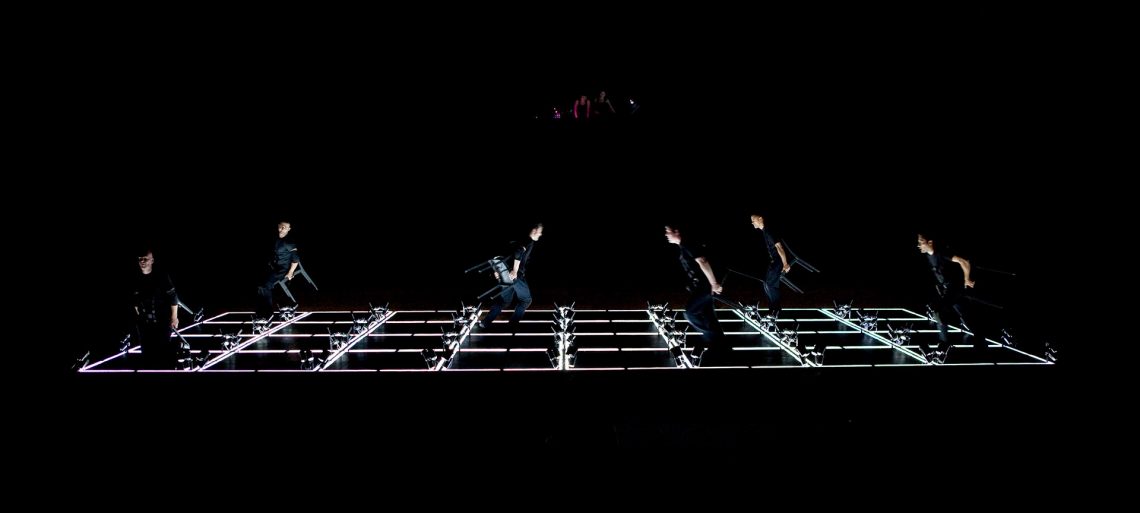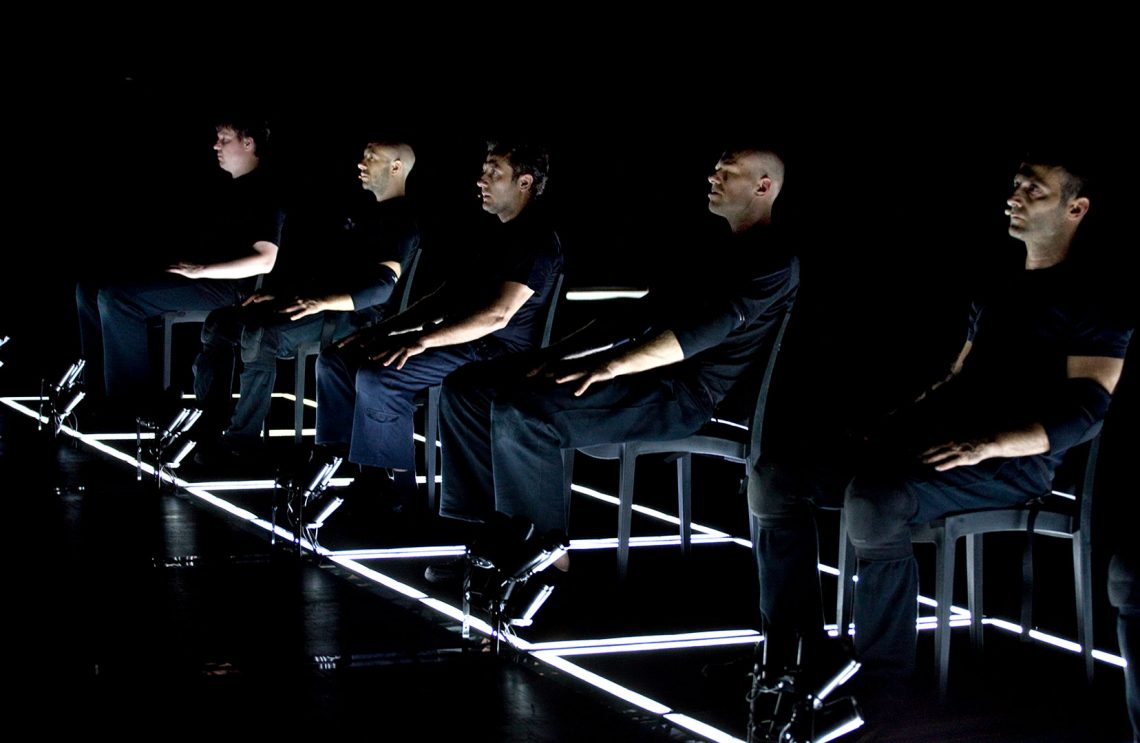REGARDING THE PLAY AND THE CONCEPT
This play is the tragedy of contemporary man trapped in his small personal world, who has sacrificed his ability to interfere in life, his big hopes and his long-term projects to short-term and small achievements, who is rendered insensitive to the problems and the people around him as well as to his surroundings by the little comforts he is offered, and who, through the bombardment of information he is subjected to, is in another way rendered uninformed and eventually ignorant.
The tragedy of the contemporary man who, having abandoned his ability to interfere in the world, tries to believe that the only “hope” is the one promised to him by the system, is conveyed through the challenge between the player and the basic elements of the stage such as light, sound and scenery.
The play presents with an ironic text and performance grammar the tragedy of those who, ignoring their own tragedy, become voluntarily “imprisoned to the system” rather than becoming “prisoners within the system”, by opposing it like Prometheus who has risked to sacrifice himself by giving mankind the gift of fire.
A “real” shared process of performance both on the stage and for the audience is created in the play where the players are subjected to the challenging conditions of the game/play, and the presence of stage elements by nature transform into challenging game rules.
FROM THE AUTHOR AND DIRECTOR’S NOTES
“Chair” is the main instrument in the play. Chair due to its presence constitutes the objective and compulsory “performative reason” for the actions of the players in the play. While in the first episode it is a burden to bear, in the second episode it becomes to be perceived as an object of desire and in the third episode it is a possession and status that both the performer and the role character have been trying to acquire during the performances, as well as a tool for accommodating rest and to which they ironically get practically bound when acquired.
The relationship of the player/role character with the chair (bondage) aims to resemble some kind of a reverse understanding of the relationship of the Prometheus and the rock.
The role character and the player are always present on the stage in a superposed way in the two layers present on the stage: the performance text and the text of play. Every word, every sentence and expression are designed to carry a double code addressing these situations both.
Every moment of the play text is weaved as the monologues of both the player and the role character overlap.
The actions of the player are constituted as the form imposed by the necessities of the work is abstracted. These actions, evolving from objective necessities create a new abstract language, grammar which belongs to the stage.
The role characters in the play signify the contemporary man who has attained an opportunity for climbing up in the social hierarchy while he had been engaged in physical work, who has succeeded in this to a certain extent by making a great effort and whose main motivation is to own and to protect the things he owns. These people are almost an embodiment of the middle class ideology. The thing they fear the most is to lose those that they have and that they have acquired. Therefore they give in to the rules of the system without questioning. The players in the game within the performance though are the ones who have been carrying chairs to set up before the beginning of the play and who have changed their status by being invited to the play-area and who learn the rules of the game simultaneously with the audience becoming the main conveyers of the play’s grammar. They are players who try very hard to stay on the stage and not to lose their “player” status.
The rules of the action in the play area are rendered by the needs of the play area only. They carry no reason or objective besides realizing themselves. The abstractness of the construction of the play enables the performance to be realized without any pretensions with a pure reality.
While the audience witnesses the performance taking place in this irrational play set-up, he also witnesses the irrational longings, efforts and renouncement of the contemporary man who is imprisoned to the system. He witnesses the contemporary man who no longer remembers Prometheus and who, in the words of Camus, would even lynch him if he were to run into him and pays the price of his amnesia by his own life.
A process of revealing the reality of “life” which has become a “game”, since everyone has become an “other” to each other and therefore is distanced from comprehending the reality that they share the same fate with their “otherness” defined by the system is enabled by the mediation of the “play”.
The common language of the players is their humanly reactions conveyed by the natural exclamation sounds. These sounds also carry a quality which will enrich the sound value of the speech pattern which will also be treated as a musical score.
The numbers that appear in various ways since the beginning, while categorizing the given or acquired information, transform more and more into commands. The repetition of the numbers which we hear since the beginning as commands will become an inseparable part of the musical score of the play.
The voice of the system will be heard by means of numbers.




